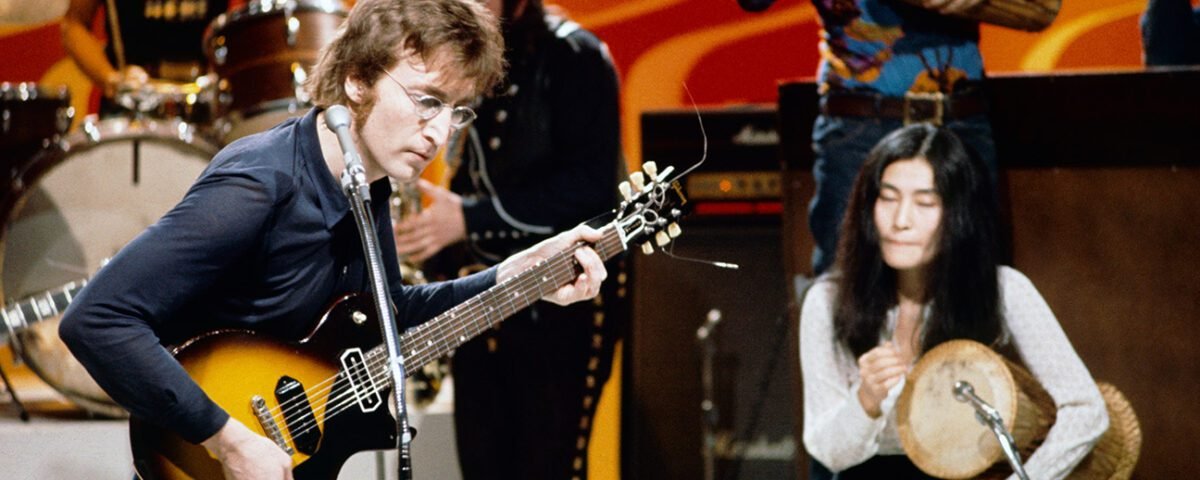


‘White Bird’ Review: Helen Mirren and Gillian Anderson in an Overly Mushy ‘Wonder’ Sequel
October 5, 2024


‘Devara: Part 1’ Review: N.T. Rama Rao Jr. Soars in an Occasionally Thrilling, Frequently Exhausting Action Drama
October 6, 2024Erik Nelson’s doc revisits a unique experiment in countercultural messaging, when the famed couple stepped in for a week in 1972 as co-hosts of the hugely popular ‘Mike Douglas Show.’
Daytime Revolution
User-friendly radicalism of a kind probably unthinkable today.
Transport yourself back to a time when America had just three major television networks and a single daytime talk show was able to generate viewer numbers as high as 40 million a week — more than a fifth of the population back then. Now imagine, if you will, a broadcast climate in which a beloved fixture of afternoon TV, watched in red states and blue, would risk alienating a significant chunk of his audience by welcoming as co-hosts a celebrity couple known for their revolutionary zeal. You can almost hear the suits’ alarmed cries: “We’ll lose the housewives!”
The Beatles had broken up two years earlier and Lennon remained a global music superstar, while his wife, Ono, was at that time still a more divisive figure. Longtime fans blamed the legendary band’s split — fairly or not — on the Japanese multimedia artist, who was seen as an intrusive presence when Lennon started bringing her along to recording sessions.
When Douglas asks, early in the first of their five episodes, what they’d like to talk about over the course of the week, Lennon and Ono respond, “Love, peace, communication, women’s lib, racism, prison conditions, drugs.” They make it clear that their creative and political agendas are intertwined, and they are there to spread the word. If Douglas feels any apprehension about how palatable that might be to his audience, he doesn’t let on.
At first glance, Douglas would appear to be of a generation and a mindset incompatible with Lennon and Ono. That impression is furthered by the lounge-act version of the Beatles’ “Michelle” that the former Big Band singer performs as an intro. But Douglas’ openness, as much as Lennon and Ono’s relaxed spontaneity, is a reason the experiment works.
Even when Douglas expresses discord with the radical views of guest Jerry Rubin, fearing he might bring a disruptive element, the host is respectful and receptive as the activist talks about rallying the nation’s disaffected youth to help defeat Nixon. That moment is one of many in which the capacity of people on opposite ends of the political spectrum to exchange ideas without hostility sits in stark contrast with today’s climate of maximum-decibel anger.
Then there are the less familiar faces, like biofeedback researcher Gary Schwarz, who hooks them all up to electrodes to measure their internal responses to music; avant-garde musician David Rosenboom; macrobiotic chef Hilary Redleaf, who leads a cooking demonstration making hijiki pockets; and folk singer/activists Nobuko Miyamoto and Chris Iijima, known as Yellow Pearl, whose lovely song about second-generation migrants “We Are the Children,” carries a message still relevant more than 50 years later.
Miyamoto, Schwarz, Rosenboom and Redleaf are among a handful of guests adding commentary in the present day, rewatching video of their appearances and recalling their initial disbelief when they got the call to appear with Lennon and Ono. Miyamoto shares a great anecdote about resisting efforts by the show’s director to tone down some lyrics deemed subversive, while Redleaf proudly displays the payment stub for her $100 honorarium (she cashed the check).
Vocalist Vivian Reed, who performs the stirring gospel hymn “His Eye is on the Sparrow” on one of the episodes, also looks back, with pinch-me, this-really-happened joy. Reed had worked with Douglas in Vegas, so along with frequent guest Carlin, she provided a bridge between the host’s comfort zone and that of Lennon and Ono.





